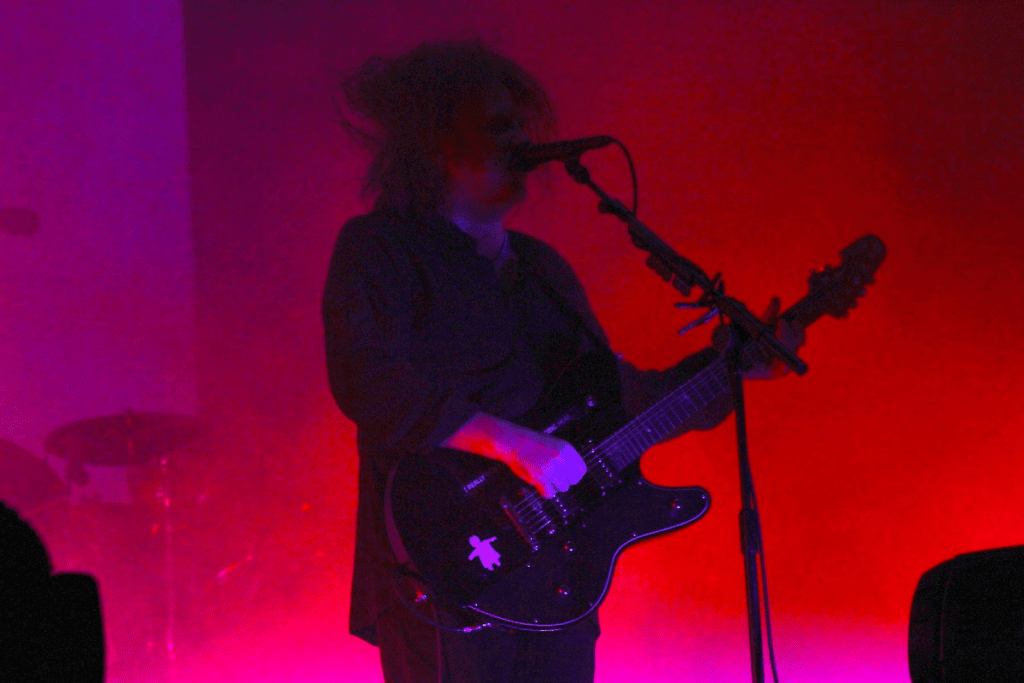Iconic The Cure frontman Robert Smith has weighed in on the band’s discography, proclaiming that one of their albums holds little good for him. This confession comes just as The Cure is set to drop its highly anticipated new album, Songs Of A Lost World, on November 1.
This new album will come as the first release from the band since 2008’s 4:13 Dream, and to warm up fans, the band has already previewed two singles from the record with “Alone” and “A Fragile Thing”. With this much to look forward to, Smith sat with BBC Radio’s Matt Everitt to give a preview of their music on the new website for the band.

Reflecting on which tracks from The Cure’s oeuvre might speak to the new album’s sound and feel, Smith said several tracks he treasures, such as the title track of Faith, “Untitled” from Disintegration, and “To Wish Impossible Things” from Wish.
However, reflecting on his earlier discography, Smith did not shy away from touching upon an album he is not all that fond of. He admitted that the self-titled album by The Cure in 2004, in his opinion, is the weakest within the band’s discography.
The Cure’ album is probably my least favourite album that we’ve made, he says. “I don’t like some of it, it’s the only album that I don’t think works. ‘Before Three’ is a good song, that would probably work.”
While derogating the general album, Smith did praise some individual tracks, particularly “Before Three.” He indicated that even though the song sounds just fine today, it will not redeem his overall discontent with the record.
The frontman also discussed his changing attitudes toward some other cuts in the band’s catalog. Among the more memorable is “The Last Day Of Summer,” from Bloodflowers. Smith said, “I wasn’t ever quite sure about it as a song, but I think it is a good song.” He explained that, over the years, it’s become one of his favorites: “That’s become a favorite.”.
Apart from those songs mentioned above, Smith also listed a few others which he thinks best represent the feel of Songs Of A Lost World. They are the title track of their debut album, Three Imaginary Boys, and “At Night” from the album Seventeen Seconds.
The Cure is the iconic sound of alternative and gothic rock since the late 1970s, and Smith’s candid openness about the group’s successes and failures makes for fascinating reading into his very creative process. Fans have long speculated as to which albums and songs resonate most with the notoriously enigmatic singer and, added to that already rich history, this candid reflection creates an added dimension to this music legacy.
Fans and onlookers wait with bated breath to see how Songs Of A Lost World will fit into The Cure’s established discography, as scheduled for release very soon. Smith’s acknowledgement of how emotion-laced and definition-setting meaning was given to certain songs has built up hype. Whether it will be another classic is too early to tell, but reflectional and even introspective tonalities of the singles suggest that this record will be another deep dive into loss and longing, themes that have dominated much of their work.
Now that the date of The Cure’s album is nearer, Robert Smith speaks candidly regarding the high and low points of the band’s career. Regardless of whether one agrees with his reviews or not, his talent in touching people through his music remains true.
But now fans can return to the Cure catalog with new ears, knowing that even Smith himself has had moments where he’s doubted specific songs and albums. As for Songs Of A Lost World, it’s well and clear that Smith has figured this new record will sound like the band, but hold something new for the listener.


